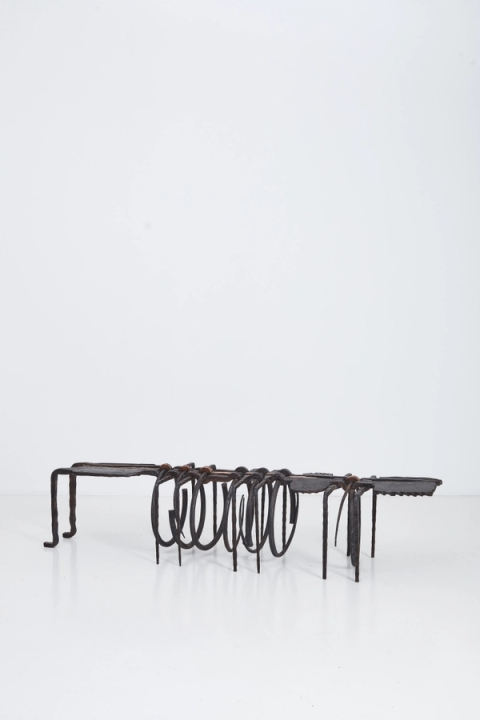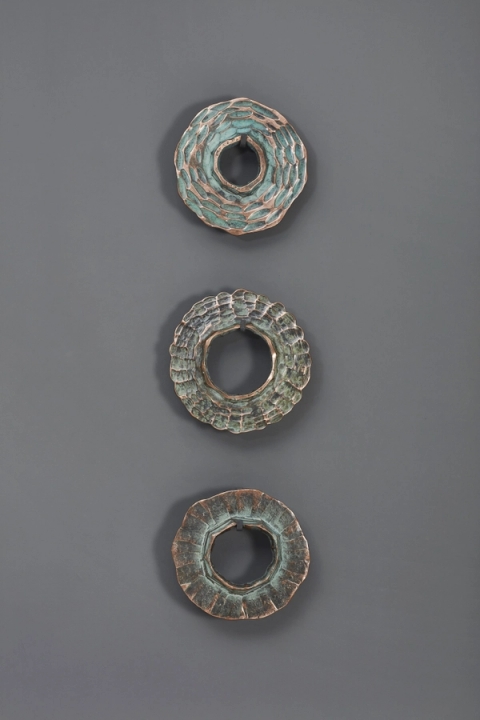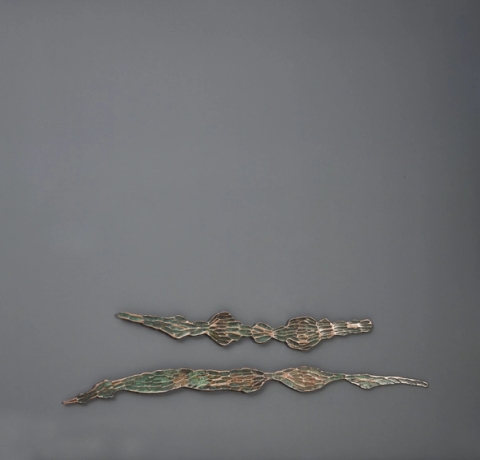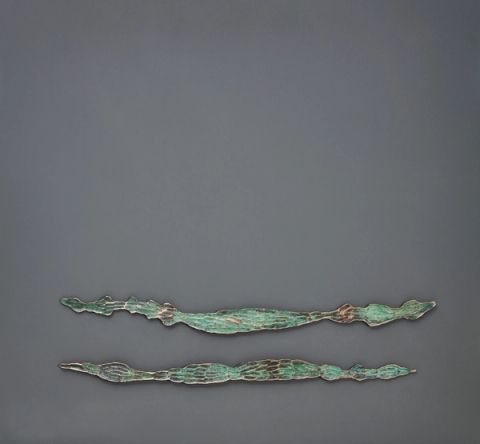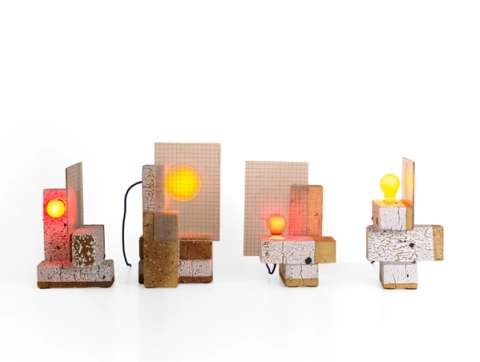My Enquiry (0)
No artwork has been selected.
Please choose an artwork to enquire.
Enquiry Submitted
Thank you for your enquiry and interest in our artists’ work. A member of the gallery team will respond shortly.
000%
24 May - 17 July 2019
Artist-blacksmith Conrad Hicks explores ancient conceptions of tool-making in this collection of hand-forged metal furniture and sculpture. Implement posits that the engineering choices we make are actually intuitive responses to searching for and locating beauty.
Conrad Hicks’s solo exhibition, Implement, is the culmination of an intuitive quest for beauty that the artist traces back to the origins of humankind. The new collection of hand-forged metal furniture and sculpture ripples with a primal energy, captured in the hammered marks and biomorphic forms that define the Cape Town blacksmith’s oeuvre.
Hicks is a deeply philosophical artist who has long immersed himself in the history of human evolution and anthropology. His work is extremely labour-intensive, necessitating a physicality through which he channels his subconscious. He often doesn’t know what his forms will be until he starts working the material with his hands. In the process of cutting, pressing, heating, hammering and stretching metal, he discovers an archetypal language that calls to mind ancient art forms.
“I see this as a distinctly African and non-European, element of my work. African-made pieces often live in two worlds; one of ritual, meaning and tradition, and another of decoration and function, and I feel that my pieces are a lot like that as well. I see them as symbolic ceremonial objects, with a meaning that is perhaps more dominant than the function, or ultimately becomes that way,” he says.
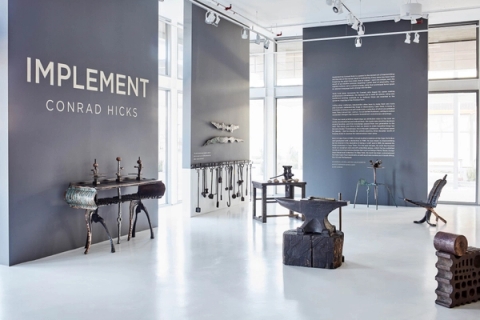
Hicks draws a correlation between his process and what drove the earliest tool-makers throughout our ancestors’ history. “It is the pursuit of beauty through technology that has driven our evolution as humans. That beauty that we pursue is actually an engineering choice, intuitively made,” he says.
For the artist, beauty and relevance go hand in hand. “Relevance is that embodied beauty – it is the only reservoir of permanent value. Today’s society has lost the ability to perceive value,” he says.
Tools hold deep resonance in the study of evolution because they are evidence of Homo sapiens’ ability to think symbolically, which became our main evolutionary advantage.
“As soon as we started making them, we began changing existentially. We attributed value to the tools we made; we embellished and refined them. We made all these intuitive decisions around function, and this knowledge passed from one generation to the next. The result, over time, is that our desire to make beautiful things has become innate,” Conrad says.
His sculptural practice has developed in parallel with his work as a maker of utilitarian implements such as knives, pans and blacksmithing tools, and some of these implements form part of the exhibition, recreating aspects of the artist’s studio inside the gallery.
Artists
Conrad Hicks
Works
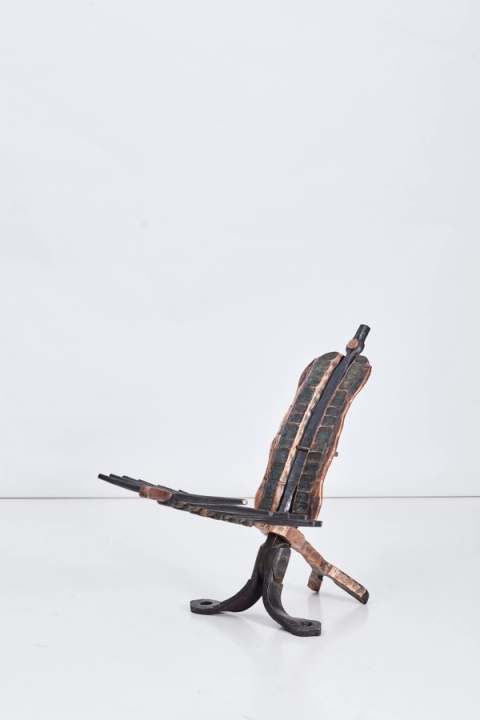
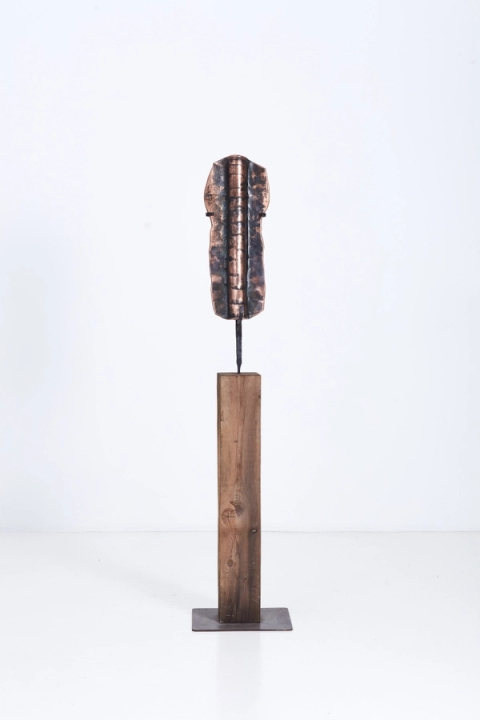
Conrad Hicks
Component I, 2019Copper, stainless steel, timber
74 x 15.8 x 15.8 in. | 188 x 40 x 40 cm
Sold
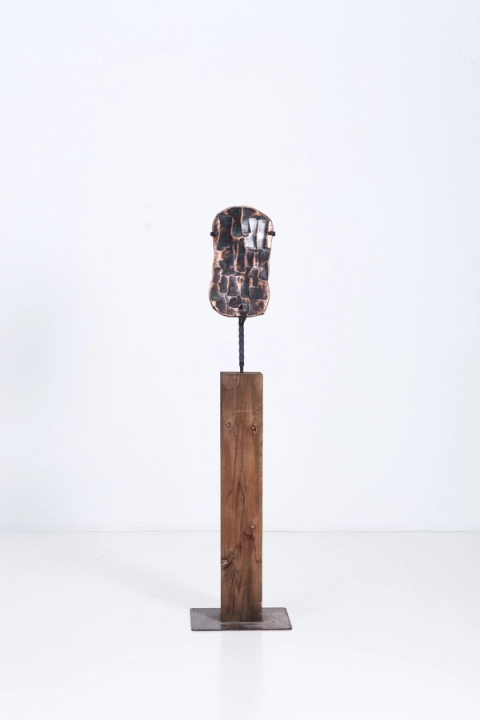
Conrad Hicks
Component II, 2019Copper, stainless steel, timber
65.8 x 15.8 x 15.8 in. | 167 x 40 x 40 cm
Sold
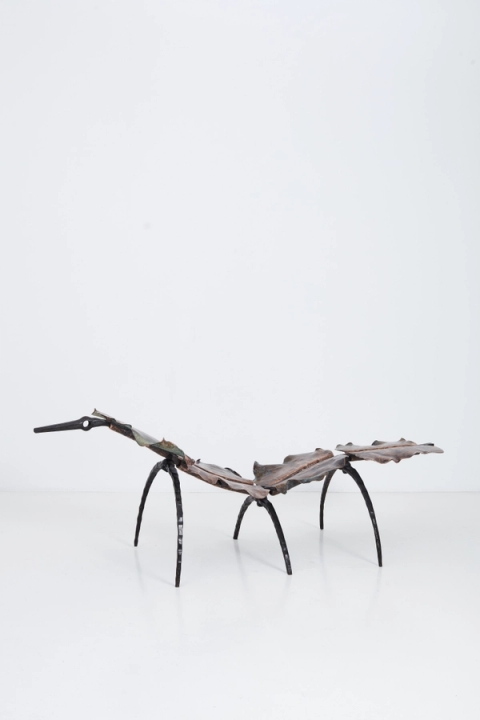
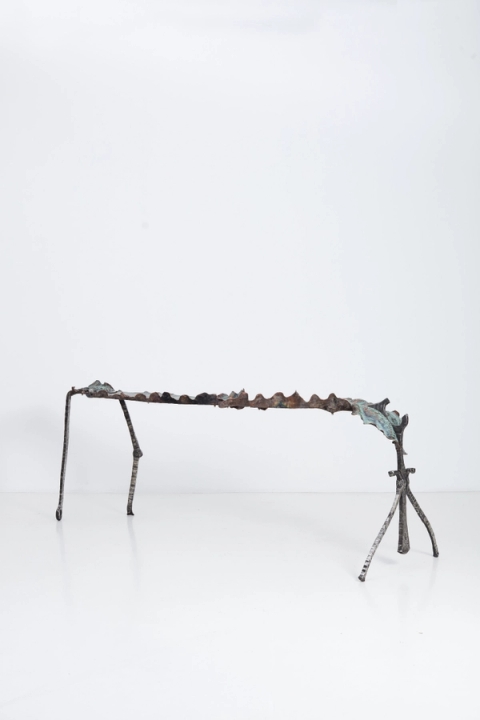
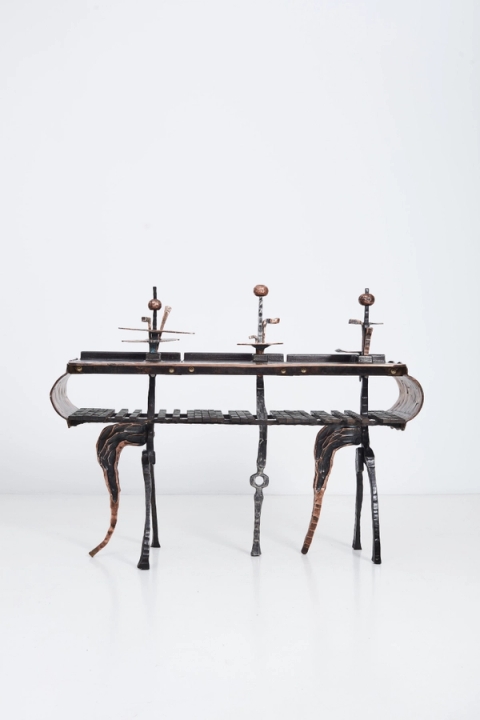
Conrad Hicks
Toolmaker's Server, 2019Iron, copper, brass, steel
38.3 x 66.9 x 21.6 in. | 97 x 170 x 55 cm
Sold
